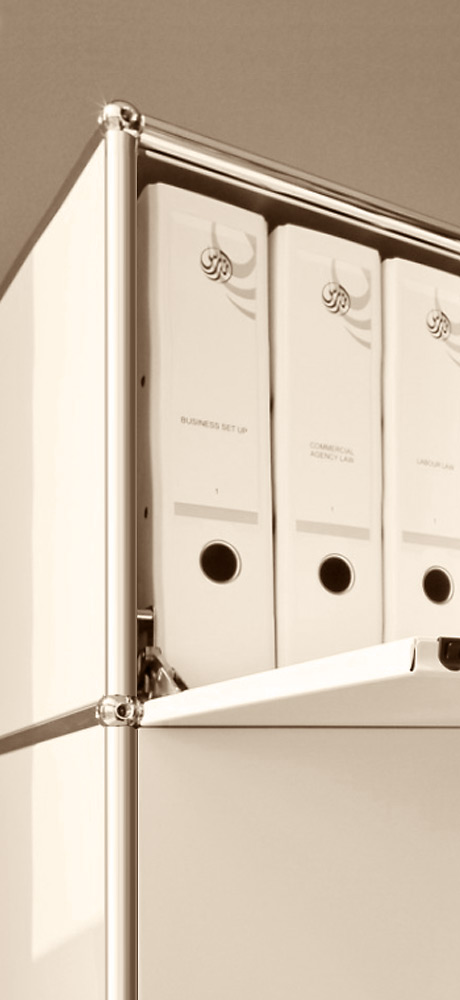Corporate
Doing Business in the United Arab Emirates
Are you interested in establishing a company in the United Arab Emirates or reorganising an existing business structure? We gladly support you in the following areas:
- Developing and reassessing market entry strategies
- Advising on the formation, restructuring and dissolution of companies located in the mainland or in free zones of the United Arab Emirates
- Drafting memoranda and articles of association, resolutions and powers of attorney
Doing Business in the United Arab Emirates
The United Arab Emirates ("UAE") provides an attractive business environment for investors. Some of the numerous incentives offered are a liberal economic policy, political stability, the exemption from personal income tax, the existence of diversified free zones, unrestricted repatriation of capital and profits as well as the tying of the UAE Dirham ("AED") to the US Dollar.
Business in the UAE can successfully be conducted by exporting products to the UAE, by taking advantage of appointing a commercial agent or distributor or by establishing a local company.
When considering a company set-up, three areas have to be distinguished: (1) the UAE mainland, (2) the free zones and (3) the offshore jurisdictions. Each location is governed by its own laws and regulations and offers various opportunities to the investor.
Establishing a Company in the UAE Mainland
The mainland of the UAE is defined as the area of each individual Emirate with the exception of its free zones. A representation can be established in each of the seven Emirates.
The Commercial Companies Law governs commercial legal entities established in the UAE mainland. The most common legal form amongst foreign investors is the limited liability company.
The liberalisation of socio-political and economic aspects, that has been consistently pursued in recent years, is also reflected in amendments to the Commercial Companies Law. One of the most important reforms concerns the abolition of the decade-old principle that at least 51% of the shares had to be held by a UAE citizen or a company wholly-owned by Emirati nationals. Now, foreigners are generally able to hold 100% of the shares in a limited liability company as well. The possibilities to put the new rules into practice vary in each Emirate and are set out in implementing regulations issued by the respective licensing authority. Exemptions apply to companies carrying out activities with a strategic impact for the UAE. In such cases, a local participation is still required.
The shareholders of a limited liability company are generally free to determine its share capital, provided the amount is adequate to achieve the purpose of the company's incorporation.
On the condition that no trading activities will be conducted, another option is establishing a branch, which is a dependent subsidiary of a foreign mother company. A branch does not have to meet any capital requirements. However, a bank guarantee amounting to AED 50,000 needs to be submitted to the competent authority.
Establishing a Company in a Free Zone
An alternative to a company formation in the mainland of the UAE is to set up in one of the country's numerous free zones.
Dubai, for example, offers a wide range of specialised free zones, which provide the investor with a tailor-made business environment. Some of the most prominent free zones are the Jebel Ali Free Zone, the Dubai Airport Freezone, the Dubai International Financial Centre, the Dubai Internet City, the Dubai Multi Commodities Centre, the Dubai Healthcare City as well as the Dubai Design District.
Free zones are geographically defined areas in the UAE in which particularities, amongst others, concerning company law and customs regulations apply.
Until recently, one of the main incentives for foreign investors to establish a company in a free zone was the fact that free zone regulations – in contrast to the laws that prevailed outside the free zones – have always allowed complete foreign ownership of a limited liability company. Nowadays, due to revised provisions of the Commercial Companies Law, foreign participation of up to 100% is generally also possible outside the free zones, i.e. in the UAE mainland.
Other unique features of free zones, however, still exist. These include the centralised handling of all administrative matters via the free zone authority itself and the possibility of bringing goods into the free zone duty-free for temporary storage or permanent use.
Finally, free zone companies can benefit from a corporate tax rate of 0% instead of 9% under certain conditions.
Establishing an Offshore Company
The formation of an offshore company is one of the most cost-effective alternatives in the UAE because no office rent has to be paid. However, offshore companies are generally not allowed to conduct business with contractual partners located in the UAE.
Choosing the Right Set-Up
Location and legal form of a new company are influenced by a number of factors, such as the kind of activity to be conducted, the location of important business partners and the available budget. In order to make best use of the various advantages in each of the different locations, a thorough analysis that takes both economic and legal implications into account should be made before deciding on one of the alternatives.
In any case, however, it must be ensured that the future company will meet the requirements of the so-called Economic Substance Regulations.

